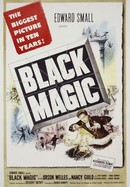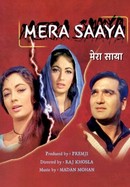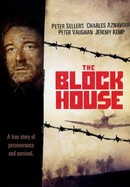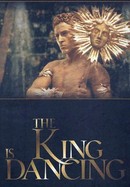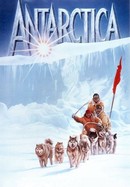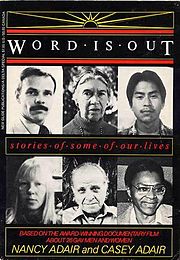From Wikipedia, the free encyclopedia
| Word Is Out | |
|---|---|

Theatrical release poster |
|
| Directed by | Mariposa Film Group Peter Adair Nancy Adair Andrew Brown Rob Epstein Lucy Massie Phenix Veronica Selver |
| Produced by | Peter Adair Peter Adair Andrew Brown Rob Epstein Lucy Massie Phenix Veronica Selver |
| Cinematography | Nancy Adair Peter Adair Andrew Brown Rob Epstein Lucy Massie Phenix Veronica Selver |
| Edited by | Nancy Adair Peter Adair Andrew Brown Rob Epstein Lucy Massie Phenix Veronica Selver |
| Music by | Trish Nugent Buena Vista Band |
| Distributed by | New Yorker Films |
|
Release date |
|
|
Running time |
124 minutes (original) 133 minutes (2008 restored version) |
| Language | English |
Word Is Out: Stories of Some of Our Lives is a 1977 documentary film featuring interviews with 26 gay men and women. It was directed by six people collectively known as the Mariposa Film Group. Peter Adair conceived and produced the film, and was one of the directors. The film premiered in November 1977 at the Castro Theater in San Francisco and went into limited national release in 1978. It also aired on many PBS stations in 1978.[1][2]
The interviews from the film were transcribed into a book of the same title, which was published in October 1978.
In 2022, the film was selected for preservation in the United States National Film Registry by the Library of Congress as being «culturally, historically, or aesthetically significant».[3]
Film description[edit]
Word Is Out intercuts interviews with 26 people, who speak about their experiences as gay men and lesbians. The interviewees range in age from 18 to 77, in locations from San Francisco to New Mexico to Boston, in types from a bee-hived housewife to student to conservative businessman to sultry drag queen, and in race from Caucasian to Hispanic, African-American, and Asian. Writer Elsa Gidlow, professor Sally Gearhart, inventor John Burnside, civil rights leader Harry Hay, actress Pat Bond, and avant-garde filmmaker Nathaniel Dorsky are among the people interviewed.
The interviewees describe their experiences of coming out; falling in and out of love; and struggling against prejudice, stereotypes, and discriminatory laws.
Production[edit]
Word Is Out took five years, over 200 interviews, and six co-directors to make.[4] Documentary filmmaker Peter Adair came up with the idea for the film. According to Adair:[5]
- In the 1970s when the modern gay movement was just beginning, our biggest problem was invisibility. Who homosexuals were was largely determined by straight people. It was bad enough that the public image of gay men and lesbians was defined largely by stereotypes — after all, I want other people to have an accurate picture of who I am. But these stereotypes created by outsiders largely defined our perceptions of who we thought we were. What a state of affairs. One’s reference for «What was Gay?» was a few nasty images, and, if you were lucky, your immediate circle of queer friends.
- Word Is Out, finished in 1977, was on its surface a very simple idea answering the simple question, «Who Are We?» For the film, I, and the five other principle [sic] people I worked with spent a year doing research interviews on videotape of 250 lesbians and gay men all across the country. In the end, twenty-two were chosen to tell their stories in the film.
The directors of the film, collectively known as the Mariposa Film Group, were Peter Adair, Nancy Adair, Andrew Brown, Rob Epstein, Lucy Massie Phenix, and Veronica Selver. An initial investment of $30,000 was raised from people who believed in the idea and wanted to see the film made, and assistants were hired and production began. The original number of interviewees was only eight people, but when the trial film was screened to test audiences, the response and interest generated indicated that a much larger and more diverse cross-section of interviewees was desirable. Several more years were then spent in filming the rest of the interviews, and intercutting them with each other to create the final product.[5]
Impact[edit]
«In 1978, Word Is Out: Stories of Some of Our Lives startled audiences across the country when it appeared in movie theaters and on PBS television. It was the first feature-length documentary about lesbian and gay identity made by gay filmmakers, and had a large and pioneering impact when it was released. The film became an icon of the emerging gay rights movement of the 1970s.»[5][6] «The silence of gay people on the screen has been broken,» Vito Russo declared in The Advocate, a national gay magazine.[4]
«When audiences saw the film, thousands wrote to the Mariposa Film Group’s post office box number listed in the end credits to express how much the film meant to them — and many of them related how viewing the film saved their lives.» «People who were alone and hopeless in Idaho, Utah and Kansas for the first time saw realistic and positive images of gay people on screen,» said production assistant Janet Cole.[5]
In the New York Times, David Dunlop wrote in 1996: «Understated though it was, Word Is Out had a remarkable impact, coming at a time when images of homosexuals as everyday people, as opposed to psychopaths or eccentrics, were rare.»[4]
In 2011, a book examining the film’s impact was published, titled Word Is Out: A Queer Film Classic by Greg Youmans.[7]
In 2022, the film was selected for preservation in the United States National Film Registry by the Library of Congress as being «culturally, historically, or aesthetically significant».[3]
Book[edit]
Word Is Out in book form (1978)
In 1978, a book containing transcripts of the interviews was published, under the same title.[8] The book also details how the film and book were created by the successful collective.
Word Is Out: Stories of Some of Our Lives was one of the first gay-focused nonfiction books sympathetic to gays published in the U.S. The book reached many people who were unable to view the film, and remained a popular gay nonfiction text for many years, helping many gays and lesbians realize that they were not alone.
The book also helped members of the heterosexual community to relate to the normalcy of homosexual lives, and to also understand gay persons’ struggles, pain, marginalization, ostracism, professional concerns, and frustrating need for secrecy when in a climate of homophobia and illegality.
Restoration of the film and DVD release[edit]
For the 30th anniversary, a restored and remastered 133-minute version of the film, which had no viable print remaining, was produced by Outfest and the UCLA Film and Television Archive,[9] and premiered on 26 June 2008, at the Frameline Film Festival at the Castro Theater in San Francisco.
The DVD edition of the documentary, featuring the restored and remastered digital print of the original film, was released in June 2010 by Milestone Films.[10] As special features, the DVD includes exclusive updates on the cast and the filmmakers plus an homage to Peter Adair, the originator and producer of Word Is Out, who died of AIDS in 1996.
Both the restoration and the DVD release were funded by gay activist and philanthropist David Bohnett, via his David Bohnett Foundation.[11] On the DVD’s special features, Bohnett speaks briefly about the film’s impact.[12][13][14]
See also[edit]
- List of LGBT-related films
References[edit]
- ^ Kehr, Dave (28 May 2010). «Coming Out, Looking in, Summing up». The New York Times.
- ^ Parker, William (1985). Homosexuality Bibliography: 1976-1982. Second supplement. ISBN 9780810817531.
- ^ a b Ulaby, Neda (December 14, 2022). «‘Iron Man,’ ‘Super Fly’ and ‘Carrie’ are inducted into the National Film Registry». NPR. Retrieved December 14, 2022.
- ^ a b c Dunlop, David W. «Peter Adair, 53, Director, Dies; Made Films With Gay Themes.» New York Times. June 30, 1996.
- ^ a b c d Word Is Out
- ^ Mohr, Richard D. Gays/Justice: A Study of Ethics, Society, and Law. Columbia University Press, 1988. pp. 280–283.
- ^ «Book». 29 January 2018.
- ^ Adair, Nancy. Word Is Out: Stories of Some of Our Lives. Delacorte Press, 1978.
- ^ Word Is Out: Stories of Some of Our Lives Archived 2013-05-21 at the Wayback Machine. Outfest. Outfest.org. Retrieved November 10, 2015.
- ^ Word Is Out DVD
- ^ Word Is Out 30th Anniversary Commemorative DVD. WordIsOutMovie.com. Retrieved November 10, 2015.
- ^ «Missing Record».
- ^ «DVD Savant Review: Word is Out».
- ^ «Word is Out: Stories of Some of Our Lives DVD – Oscilloscope Laboratories». store.oscilloscope.net. Archived from the original on 2016-03-04.
External links[edit]
- Word Is Out – Official website
- Word Is Out at AllMovie
- Word Is Out: Stories of Some of Our Lives at IMDb
- Word Is Out: Stories of Some of Our Lives at the TCM Movie Database
- Word Is Out: Stories of Some of Our Lives at the American Film Institute Catalog
- Word Is Out – informational PDF
TM + © 2023 Vimeo.com, Inc. All rights reserved.
-
Terms
-
Privacy
-
Do Not Sell My Personal Information
-
Copyright
-
Cookies
Mature content filter: None
Language:
English
Word Is Out
Photos
Movie Info
In this documentary, an extremely disparate group of gay and lesbian individuals engages in a series of interviews on topics such as bigotry, stereotyping, their own personal relationships, and how coming out changed their lives. The participants include white collar workers, former members of the U.S military, factory laborers, a filmmaker, and a transvestite performer. They range in age from young adults to senior citizens and represent many races, ethnicities and economic backgrounds.
-
Genre:
Documentary,
Lgbtq+
-
Original Language:
English -
Director:
Peter Adair,
Nancy Adair,
Veronica Selver,
Andrew Brown,
Rob Epstein,
Lucy Massie Phenix
-
Producer:
Peter Adair
-
Runtime:
2h 15m
Cast & Crew
Critic Reviews for Word Is Out
There are no critic reviews yet for Word Is Out. Keep checking Rotten Tomatoes for updates!
Audience Reviews for Word Is Out
There are no featured reviews for Word Is Out because the movie has not released yet ().
See Movies in Theaters
With social distancing getting in the way of social life, I’ve found a particular pleasure in documentaries in which people talk at length. It’s a subgenre unto itself, and a crucial one. Many documentaries denature interviews into sound bites, whereas ones featuring interviews centrally are like opéras vérité: their directors don’t merely record people speaking but set the spoken text to images as a composer does a libretto to music. It’s also a young subgenre; it was born in 1960, when lightweight professional-quality synch-sound equipment had just been devised. In the United States, Robert Drew’s “Primary” used such equipment to change the documentary filmmaker from an observer into an immersed participant in the onscreen action. In France, Jean Rouch and Edgar Morin’s “Chronicle of a Summer”—the primordial interview film—used it to turn talk into the heart of the action. The early generation of interview films (as in the extraordinary collection in the “Tell Me” series, on the Criterion Channel) have a built-in element of physical drama, of confrontation with the material, because they were shot on film. This often lends them a distinctive artistic and even ethical urgency. One such crucial film, and a profoundly moving one, “Word Is Out,” from 1977, is now available to stream on Vimeo on Demand.
“Word Is Out” is widely considered to be the first feature film about gay people by gay people. It is a movie of a mighty complexity built from the simple premise of people talking about their lives. Distilled from approximately two hundred interviews, it features twenty-six people, from college age to elderly, and from a variety of backgrounds and places, whose divergent lives converge around their common experiences of persecution and alienation as a result of being gay. The subjects discuss these experiences and the breakthrough moments that led them to accept their sexuality, and, in the third part of their film, they imagine a society in which L.G.B.T.Q. people will have the same freedoms as straight people—and the public action that’s needed to fight for those changes.
The movie itself is one such public action. It is simultaneously a presentation to the world at large about the lives of gay people and an affirmation, to gay people themselves, that there is a community out there with which they can identify. Many of the subjects in “Word Is Out” discuss the lack of media representations of people like themselves, which contributed to their sense of isolation. The film provides the beginnings of such representation—and the self-aware assertion that this representation is itself an instrument of political change.
Many participants share detailed accounts of the terrifying consequences they suffered for being gay. Pat Bond discusses her military service during the McCarthy era, after the Second World War, where many lesbians found a community for the first time—and where a brutal crackdown, involving surveillance and coerced testimony, led to the dishonorable discharge of five hundred women serving in Tokyo. Rick Stokes describes being in a furtive same-sex relationship for many years with a neighbor, beginning when he was ten and the neighbor was twelve; when the ongoing relationship was disclosed to his wife, he was interned in a mental hospital, was threatened with castration, and endured shock treatment, he estimates, twenty-five times. A woman called Whitey moved to Greenwich Village, where she’d heard that there were many gay people—and, after her father found her there, she was incarcerated for four years in a New York State mental hospital. A middle-aged man named George Mendenhall describes arriving in San Francisco in the early fifties, as a young man, and finding a gay bar—one under intense police scrutiny and pressure—where a performer named Jose got his audiences to sing an anthem together, in an act of unity and collective affirmation that brings tears to Mendenhall’s eyes in the telling.
“To the doctor, you were sick; to the lawyer, you were a criminal; and to the minister, you were wicked,” another middle-aged participant, John Burnside, says. Many of the film’s subjects carefully and elaborately concealed their identities. Others, in their younger days, didn’t even get that far—they hadn’t even heard the word “homosexual,” had no vocabulary with which to identify themselves, and knew only that they felt different from the people around them. (Some participants, including Tede Mathews, who identifies as male and often wears what he calls women’s clothing, try to avoid labelling and defining their gender and sexual identities altogether.) Bond, the woman who served in the military, calls her very participation in the film an act of coming out, and worries about the professional consequences that she could face as a result—and that others in the film were risking, too. One woman, Ann Samsell, fears how participating in the film might affect her father if his colleagues found out.
“Word Is Out” is poised at the intersection of the public and the private, the intimate and the political, the individual and the collective—and its ideas are embodied in its mode of production. It was made by the Mariposa Film Group, a collective of six filmmakers (Peter Adair, who’s credited as the producer, Nancy Adair, Andrew Brown, Robert Epstein, Lucy Massie Phenix, and Veronica Selver), and its diversity of subjects is matched by a cinematic diversity—it reflects not one technique but several, not one practice but a variety of practices, which similarly coalesce into a sense of shared experience and shared purpose. When filming the actor Roger Harkenrider in a rehearsal studio, for instance, the cinematographer and sound recordist are clearly visible at work in the mirrored wall behind him. Interviewers are heard on the soundtrack, filmmakers gather for a meal with the film’s most senior participant, the poet Elsa Gidlow (who was born in 1898 and was seventy-seven at the time of filming), and join Whitey in cutting down a dead tree branch that’s threatening the roof of her cabin. The participants, who are often filmed in extreme closeups of a frank intimacy, with alternating hand-held cinematography and static shots from tripods, are also seen in wider views, in their own environments, mainly at home, partaking in familiar domesticities and leisure activities. The very ordinariness of their circumstances, despite the extraordinary pressures that they’ve endured throughout their lives, is one of the movie’s subjects. What’s extraordinary about their circumstances is the self-abnegation, the emotional shutdown that many of the participants experienced for fear of exposure; the struggle for self-recognition and public acceptance is centered on the quest for love.
In the movie’s third section, “From Now On,” the participants envision a more humane society, not only for homosexuals but for all—one in which gender roles wouldn’t be narrowly limiting, in which the ability to publicly express one’s identity and desire (as in the film) would liberate emotional life at large. The film’s own breaking of silence is a crucial part of the process. In this regard, “Word Is Out” follows in the tradition of interview movies pioneered by “Chronicle of a Summer.” There, the filmmakers began with the premise of approaching random people in Paris and asking them whether they’re happy. The answers that people gave quickly veered to matters of politics and history—notably, of the Algerian War (discussion of which was rigidly censored in France at the time) and of France’s share of responsibility for the Holocaust (then a largely taboo subject in the country’s public discourse). The voices of “Word Is Out” have a similarly liberating, polyphonic energy, a sense of collective yet independent improvisation that’s thematically centered on the connection of personal happiness and political progress. None of the subjects anticipates the legalization of gay marriage; one, Sally Gearhart, speaks regretfully about the fact that she’ll never be able to wed. Meanwhile, persecution continues: Pam Jackson, who was in a relationship with a woman named Rusty Millington, had her children taken from her as a result. But “Word Is Out” points toward a more humane future—with practical steps to achieve it. The conclusion of the film, depicting a march for gay rights in which the subjects’ diverse voices fuse into a unified chorus, suggests the transformation of discourse into power.
| Word Is Out | |
|---|---|
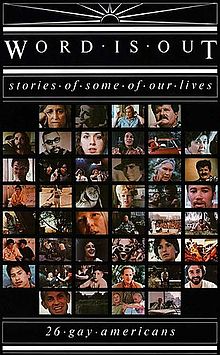 Theatrical release poster |
|
| Directed by | Mariposa Film Group Peter Adair Nancy Adair Andrew Brown Rob Epstein Lucy Massie Phenix Veronica Selver |
| Produced by | Peter Adair |
| Music by | Trish Nugent Buena Vista Band |
| Distributed by | New Yorker Films |
| Release date(s) | November 1977 |
| Running time | 124 min. 133 min. (2008 restored version) |
| Language | English |
Word Is Out: Stories of Some of Our Lives is a 1977 documentary film featuring interviews with 26 gay men and women. It was directed by six people collectively known as the Mariposa Film Group. Peter Adair conceived and produced the film, and was one of the directors. The film premiered in November 1977 at the Castro Theater in San Francisco, and was released in 1978.
The interviews from the film were transcribed into a book of the same title, which was published in October 1978.
Contents
- 1 Film description
- 2 Production
- 3 Impact
- 4 Book
- 5 Restoration of the film and DVD release
- 6 See also
- 7 References
- 8 External links
Film description
Word Is Out intercuts interviews with 26 very diverse people, who speak about their experiences as gay men and lesbians. The interviewees range in age from 18 to 77, in location from San Francisco to New Mexico to Boston, in type from bee-hived housewife to student to conservative businessman to sultry drag queen, and in race from Caucasian to Hispanic, African-American, and Asian. Writer Elsa Gidlow, professor Sally Gearhart, inventor John Burnside, civil rights leader Harry Hay, and avant-garde filmmaker Nathaniel Dorsky are among the interviewees.
The interviewees describe their experiences of coming out; falling in and out of love; and struggling against prejudice, stereotypes, and discriminatory laws. The participants deliver their testimony with intelligence, grace, honesty, and conviction, creating an engaging and moving oral history.
Production
Word Is Out took five years, over 200 interviews, and six co-directors to make.[1] Documentary filmmaker Peter Adair came up with the idea for the film. According to Adair:
In the 1970s when the modern gay movement was just beginning, our biggest problem was invisibility. Who homosexuals were was largely determined by straight people. It was bad enough that the public image of gay men and lesbians was defined largely by stereotypes — after all, I want other people to have an accurate picture of who I am. But these stereotypes created by outsiders largely defined our perceptions of who we thought we were. What a state of affairs. One’s reference for «What was Gay?» was a few nasty images, and, if your were lucky, your immediate circle of queer friends.
Word Is Out, finished in 1977, was on its surface a very simple idea answering the simple question, «Who Are We?» For the film, I, and the five other principle people I worked with spent a year doing research interviews on videotape of 250 lesbians and gay men all across the country. In the end, [26] were chosen to tell their stories in the film.[2]
The directors of the film, collectively known as the Mariposa Film Group, were Peter Adair, Nancy Adair, Andrew Brown, Rob Epstein, Lucy Massie Phenix, and Veronica Selver. An initial investment of $30,000 was raised from people who believed in the idea and wanted to see the film made, and assistants were hired and production began. The original number of interviewees was only eight people, but when the trial film was screened to test audiences, the response and interest generated indicated that a much larger and more diverse cross-section of interviewees was desirable. Several more years were then involved in filming the rest of the interviews, and intercutting them with each other to create the final product.[2]
Impact
In 1978, Word Is Out: Stories of Some of Our Lives startled audiences across the country when it appeared in movie theaters and on television. It was the first feature-length documentary about lesbian and gay identity made by gay filmmakers, and had a large and pioneering impact when it was released. The film became an icon of the emerging gay rights movement of the 1970s.[2][3] «The silence of gay people on the screen has been broken,» Vito Russo declared in The Advocate, a national gay magazine.[1]
When audiences saw the film, thousands wrote to the Mariposa Film Group’s post office box number listed in the end credits to express how much the film meant to them — and many of them related how viewing the film saved their lives. «People who were alone and hopeless in Idaho, Utah and Kansas for the first time saw realistic and positive images of gay people on screen,» said production assistant Janet Cole.[2]
In the New York Times, David Dunlop wrote in 1996: «Understated though it was, Word Is Out had a remarkable impact, coming at a time when images of homosexuals as everyday people, as opposed to psychopaths or eccentrics, were rare.»[1]
Book
Word Is Out in book form (1978)
In 1978, a book containing transcripts of the interviews was published, under the same title.[4] The book also details how the film and book were created by the successful collective.
Word Is Out: Stories of Some of Our Lives was one of the very first gay-focused nonfiction books sympathetic to gays published in the U.S. The book reached many people who were unable to view the film, and remained a popular gay nonfiction text for many years, helping many gays and lesbians realize that they were not alone.
The book also helped members of the heterosexual community to relate to the normalcy of homosexual lives, and to also understand gay persons’ struggles, pain, marginalization, ostracism, professional concerns, and frustrating need for secrecy when in a climate of homophobia and illegality.
Restoration of the film and DVD release
For the 30th anniversary, a restored 133-minute version of the film, which was produced by Outfest and the UCLA Film and Television Archive, premiered on 26 June 2008 at the Frameline Film Festival at the Castro Theater in San Francisco.
The DVD edition of the documentary was released in June 2010 by Milestone Films.[5] The filmmakers, known collectively as the Mariposa Film Group, released the commemorative DVD featuring the restored and remastered digital print of the original film. In addition, the DVD includes as special features exclusive updates on the cast and the filmmakers and an homage to Peter Adair, originator and producer of Word Is Out, who died of AIDS in 1996.
See also
- List of lesbian, gay, bisexual or transgender-related films
- List of lesbian, gay, bisexual or transgender-related films by year
References
- ^ a b c Dunlop, David W. «Peter Adair, 53, Director, Dies; Made Films With Gay Themes.» New York Times. June 30, 1996.
- ^ a b c d Word Is Out
- ^ Mohr, Richard D. Gays/Justice: A Study of Ethics, Society, and Law. Columbia University Press, 1988. pp. 280–283.
- ^ Adair, Nancy. Word Is Out: Stories of Some of Our Lives. Delacorte Press, 1978.
- ^ Word Is Out DVD
External links
- Word Is Out
- Word Is Out at AllRovi
- Word Is Out: Stories of Some of Our Lives at the Internet Movie Database
- Word Is Out – informational PDF
| v · Rob Epstein | |
|---|---|
| Solo |
The Times of Harvey Milk (1984) · Where Are We? Our Trip Through America (1989) · An Evening with Eddie Gomez (2005) |
| Collaborations |
Word Is Out: Stories of Some of Our Lives (1977, with Peter Adair, Nancy Adair, Andrew Brown, Lucy Massie Phenix and Veronica Selver) · The AIDS Show: Artists Involved with Death and Survival (1986, with Peter Adair) · Common Threads: Stories from the Quilt (1989, with Jeffrey Friedman) · The Celluloid Closet (1995, with Jeffrey Friedman) · Paragraph 175 (2000, with Jeffrey Friedman) · Underground Zero (segment «Isaiah’s Rap»; 2002, with Jeffrey Friedman) · Howl (2010, with Jeffrey Friedman) |


